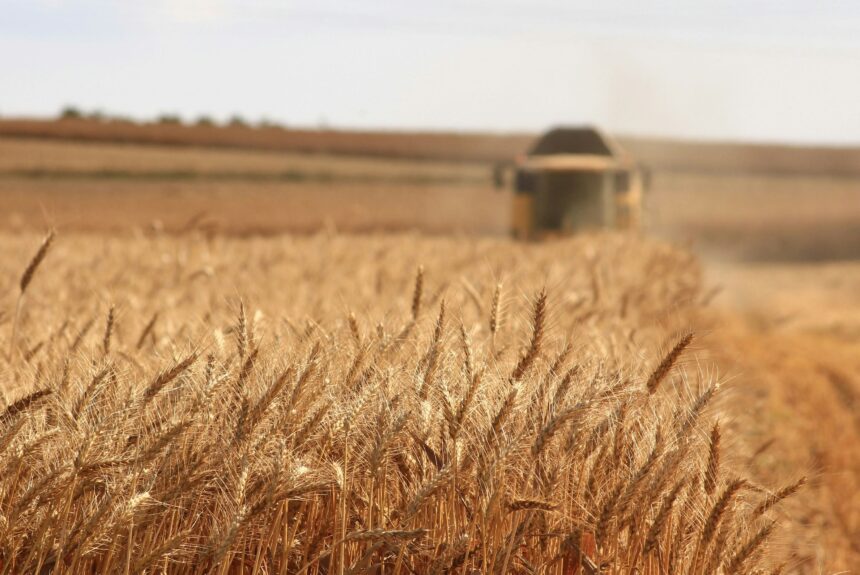Global food security continues to rise on the list of global crises. Rightly so. Currently 783 million people (including 44 million people in the U.S) are food insecure, the highest level in the past 10 years. The pandemic, followed by the war in Ukraine coupled with wide-scale conflicts across the Sahel, Horn of Africa and Middle East have left hundreds of millions of people hungry and produced food shortages in formerly middle-income countries.
>>>READ: Economic Freedom: A Catalyst for Global Access to Safe Drinking Water
While conflict remains the number one driver of hunger on the planet, economic freedom is key to reducing global food poverty. Providing meals through humanitarian assistance certainly helps the hungry in the short term, but unless people are given control of their labor and land with access to markets, free information and stable rule of law, the data (and history) show that communities are unlikely to move out of poverty. Without economic freedom, families will remain in a vulnerable state of food insecurity.
If policymakers want to both feed and save the planet, economic freedom must remain front and center in the debates about climate and food security.
History repeatedly informs us that when people gain control of their labor and property, they work hard to ensure access to markets and a stable rule of law. As free societies emerge, poverty and hunger decrease. In 1950, less than a quarter of the world’s population lived in free societies, and more than half of the global population of 2.5 billion lived in extreme poverty (as noted in the following graphs). However, as freedom expanded across the globe, poverty and hunger fell – and fell dramatically. By 1990, only 30% of the world’s population was in extreme poverty, and by 2018 it fell even further to less than 10%. Remarkably, during that same 68-year period the world’s population tripled.
When freedom increases, poverty falls, and food security increases. It’s a virtuous circle of correlated conditions whereby the market efficiencies generated by private property, ownership of one’s labor, and investment practices promote and secure food security over time – and notably they do the same for environmental stewardship and protection. We see this through the data available from the Index of Economic Freedom and the Global Food Security Index. Coupled with the Yale Environmental Performance Index, countries that score high on freedom not only score high on food security but also demonstrate sound environmental practices and outcomes.
Of the top 20 most free countries in the world, eight also rank in the top 20 for most food secure and cleanest (the blue states). Freedom inspires efficiencies in the market which by its nature values diversity of diet and nature, as well as the environmental protections to maintain them. Innovation empowers food producers to feed more people using fewer resources.
Of the remaining 12 countries, another ten of the freest also find themselves in the top 20 for either food security (free and fed – orange) or environmental performance (free and clean – green). (France, Germany and Austria rank high in both clean and green, and are within the top quarter of freest societies, but not the top 20.)

The link between environmental stewardship and economic freedom is no accident and has been identified by C3 Solutions in their Free Economies are Clean Economies report. Just like the connection between free economies and clean economies, there is an additional link to food security that has not been broadly discussed. Food security often falls into the category of humanitarian principles, rather than in the more deserved category of economic freedom. Regrettably, one of the most fundamental of those freedoms – private property – is not incorporated plainly into the regular IPCC Reporting or COP discussions; and barely makes a fleeting reference in the Sustainable Development Goals (Target 1.4).
>>>READ: Breathe Easy: Economic Freedom Freedom Provides a Breath of Fresh Air to the World
Conversely, when communities experience authoritarianism or conflict, they often quickly devolve into conditions of chronic hunger followed by stresses on natural resources, furthering the harm to our increasingly fragile planet. This is especially true when conflict arises, whether through outside aggression (Russia’s invasion of Ukraine) or civil war (such as Sudan or Congo, both countries which have abundant natural resources, yet civil strife fuels environmental degradation and chronic hunger).
As witnessed first-hand by the people of Venezuela, while their freedoms were taken away and businesses nationalized over the past 20 years, there has been a dramatic rise in hunger and environmental destruction. Venezuela, formerly high on the list of economic freedom (and one of the most prosperous Latin countries in the 1970’s), has become the third hungriest state in the world while its environment has been ransacked. A quarter of the population (seven million people) have fled the country as economic and political refugees in the past eight years. Authoritarian rule in Syria, Afghanistan, Ethiopia and a host of other nations continues to showcase that when heavy-handed regimes oppress their people, the results are hunger, poverty and increased environmental costs.
Hunger, environmental security, and economic freedom go hand-in-hand. It was the Nobel Prize-winning economist Amartya Sen who drove home the connection in his book, Development as Freedom when he noted that “No famine has ever taken place in the history of the world in a functioning democracy.” While activists concerned with food security and climate change continue to press their cases with policymakers and the general public, they would do well to remember that the time-tested tools of economic and political freedom bear the most fruit in securing our future for the generations to come.
David Austin served as the Director of Strategic Partnership for the UN World Food Program (2018-2023), and has more than 20 years’ experience in development and humanitarian assistance.
The views and opinions expressed are those of the author’s and do not necessarily reflect the official policy or position of C3.
